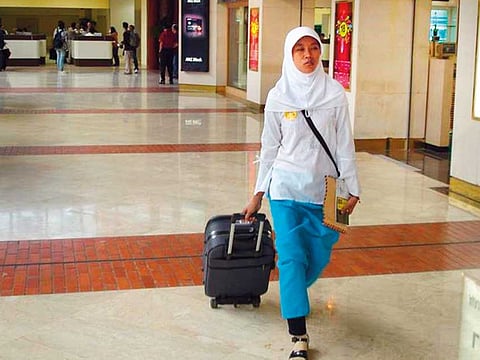70% of domestic workers in Kuwait have expired contracts
Most of domestic workers in Kuwait have two year contracts

Kuwait City: The head of the Federation of Domestic Workers Offices, Khaled Al Dakhan, revealed that around 70 per cent of domestic workers in Kuwait have expired contracts, Al Qabas reported.
Al Dakhan pointed out there are several negative issues domestic workers face in Kuwait. One, they are unable to travel. Second, there is a lack of domestic workers in Kuwait due to the ban imposed on issuing new visas for domestic workers.
Third, given that many domestic workers’ contracts have expired, they are leaving their employers or refusing to work, especially since their contract is usually two years and if the contract ends there is nothing that binds both sides.
Al Dakhan, and other members of the federation, have pointed out multiple times that due to the closure of recruitment offices, many of them have lost a lot of business. Black market surge
Due to the closure of recruitment agencies, brokers have been providing domestic workers’ services illegally and at a higher price, thus taking advantage of the lack of competition.
These brokers have been advertising the services of domestic workers for 25 Kuwaiti dinars per hour and 250 Kuwaiti dinars per month.
The illegal domestic workers’ network divides the sum between the broker and the domestic worker. The domestic worker gets 10 Kuwaiti dinars for four hours of work and 15 Kuwait dinars goes to the broker, a source told Al Qabas.
Ban on new recruitment of domestic workers
For almost nine months now, Kuwait has put a ban on recruiting domestic workers from 25 countries, 23 of which are African and the other two are Indonesia and Bhutan.
This is not the first time Kuwait has placed a ban on recruitment of domestic workers from abroad.
In April 2019, Kuwait added Ethiopia, Burkina Faso, Bhutan, Guinea and Guinea-Bissau to the list of banned countries bringing the total to 20. According to Migrant Rights, the bans are put in place mainly due to the fact that these countries lack embassies and labour corporations in Kuwait.
Sign up for the Daily Briefing
Get the latest news and updates straight to your inbox







